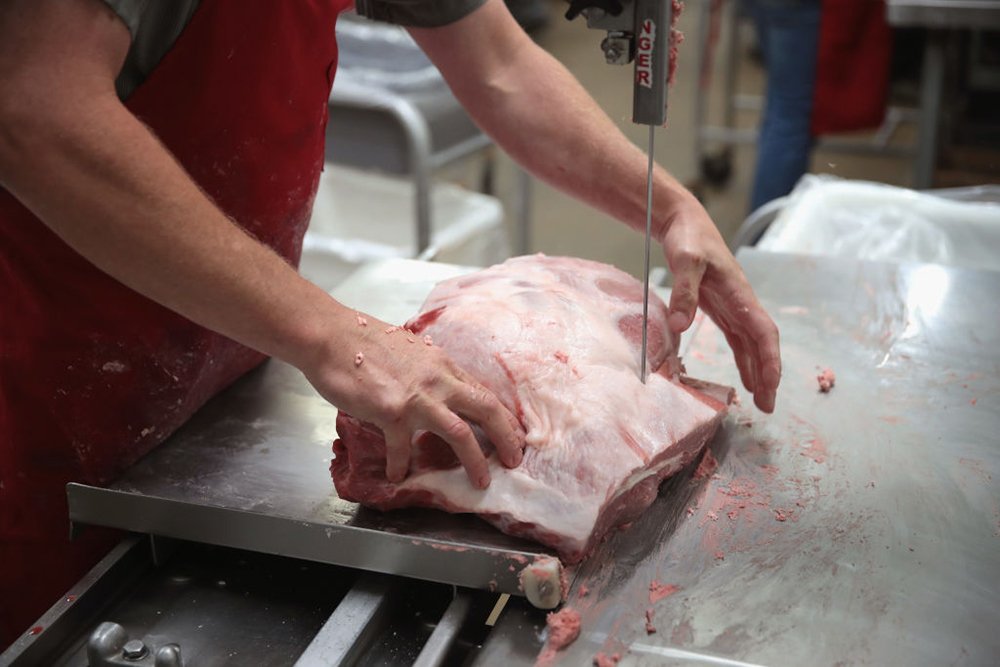Who are the workers?
The blight of working in slaughterhouses disproportionately impacts low income communities and communities of color. Across all jobs in the USA under the slaughtering, processing, and packing umbrella, around 35% are hispanic and 22.5% are black. Across all workers in the USA around 17% are immigrants. In the slaughter industry that rate is 37.5% The big meat industry understands that immigrants, often times undocumented, are easier to exploit by keeping wages low while demanding long hours without health coverage. Oftentimes the industry's justification for employing immigrants is because these are jobs that American born workers do not want to do. Studies have shown that this is not just an anecdote.
INJURY IS INEVITABLE
The list of negative physical impacts that the slaughter industry has on workers is long, well known, and are a result of standard practices. Combining sharp objects, such as knives, saws, and hooks, with fast-paced automated machinery is a perfect recipe for serious injury. Many of the common injuries workers face are preventable, but are not remedied for a variety of reasons. While there are a variety of jobs in a slaughterhouse, most workers are trained and become proficient in just one. For example, one worker will stun, maim, or kill the animal, while another worker will trim pieces of fat away from muscle and bone. Due to the speed, physical intensity, and monotony of motions, musculoskeletal disorders (MSDs) are extremely common amongst workers. MSDs are sprains, strains, or inflammation of the muscles, tendons, ligaments, and nerves. A 2014 OSHA report showed that repetitive motion injuries are 7x higher in beef and pork processing than that of other private industries.
not all scars are visible
In addition to being physically dangerous, this line of work induces extreme psychological harm. Working in slaughterhouses has been linked to PTSD and a lesser known variant called PITS (Perpetrator-Induced Traumatic Stress). This has also been linked to increased rates of incarceration, domestic abuse, and drug and alcohol abuse. One doctor, Chi-Chi Obouya, a clinical psychologist with the Nightingale Hospital in London, UK, likened the work of a slaughterman to that of a child soldier. They are both forced into conflict situations in which they’re expected to repeatedly commit acts of extreme violence. Many of these workers feel these effects indefinitely which can lead to depression and even suicide.





